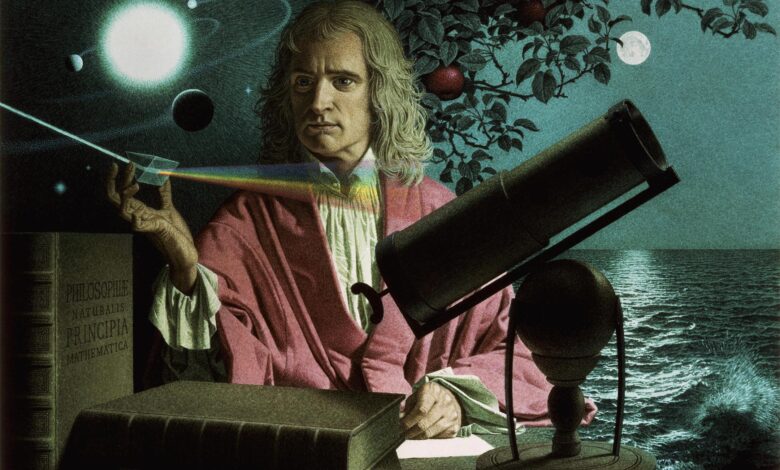
The three princes of Serendip (the ancient name of Sri Lanka in Persian) are exiled by their father, who is the king. Although they are good boys, the king wants them to learn about the larger world and its people and be tested before they ever take his place.
On their way, the princes meet a person who lost his camel and is looking for it. Although they have not seen the camel, they tell him that they have seen the camel and describe three important characteristics of the lost animal: one eye is blind, one of its teeth is missing, and one of its legs is limping.
After the camel is returned to its owner, it turns out that the princes were right. But how were they able to describe the prominent features of the camel without seeing it? They used their keen visual abilities to notice unusual signs and cleverly interpreted the observations and revealed the truth that was not visible to others at first glance.
The above story is very old and is sometimes told about an elephant or a horse. But this is the version that Amir Khosro Dehlavi expressed in Delhi in 1301 in the poem Hasht Behesht, and it is also the same version that Christopher Armenian clumsily translated in the form of the Venetian novel “The Three Princes of Serendip” published in 1557. It was this version that indirectly brought the word serendipity into the English language.
In any version of the story, the princes do not accidentally come across something important that they were not looking for, or they do not discover something valuable based on mistaken beliefs or misunderstandings, but the whole story is based on their careful observations and logical analyzes of the surrounding signs and conditions.
In the story of Princes of Serendipity, luck and random events, whether pleasant or unpleasant, do not play a role. On the contrary, these three people use their detailed observations to argue. Their main talent is the ability to discover unexpected and surprising things and then use these observations to formulate hypotheses and conjectures that allow them to infer the existence of something they have never seen before.
Serendipity actually represents our infinite ignorance
Telmo Pivani, a professor in the Department of Biology at the University of Padua in Italy, defines serendipity in a new book titled “Serendipity: The Unexpected in Science.”
Piwani begins his book by examining the world literature and deals with the formation and misunderstanding of the mentioned term over time: in 1754, the British thinker Horace Walpole coined the term serendipity after reading the famous English translation of the book Travels and Adventures of the Three Princes of Serendipity. It defines it as “accidental and intelligent discovery of things we were not looking for”.
Pivani has a lot of information about the history of science and displays some of it. He is quick to dismiss all the famous examples of serendipity: for example, the microbiologist Alexander Fleming was studying antibiotics and searching for a commercially useful antibiotic years before he was led to the discovery of penicillin by a moldy dish. However, Wilhelm Roentgen accidentally discovered X-rays, because of his knowledge of cathode rays, he was able to realize that he had found a new type of ray.
Many people throughout history have caused water to splash around by entering the bathtub or witnessed an apple fall from a tree; But only Archimedes (who had just been commissioned to check whether the king’s crown was made entirely of gold) and Newton (the scientist who invented the calculus) made their famous discoveries about density and gravity from these ordinary (probably fake) occurrences. .
After dismissing these old stories, Piwani turns to more real and powerful examples of serendipity. For example, George de Mestral, while hiking in the Alps, noticed thorns sticking to his pants, and then came up with the invention of hook-and-loop fastener, or Velcro. He certainly wasn’t looking for anything at the time, but he was able to use his observation to create useful technology.
French-American chemist Ilodre Irene Dupont also developed nylon, Teflon, and sticky note paper while working with polymers for other purposes. The discovery of the Americas by Christopher Columbus occurred when he assumed that the Earth was about one-third smaller than Eratosthenes’ calculations, which he had correctly calculated almost two thousand years earlier.
Luck or preparation?
There are other similar cases. Chemotherapy and vaccinations, for example, all bring to mind Pasteur’s quote, “Luck only comes to a prepared mind.”
So what is the best way to prepare your mind and generate random discoveries? This is a million dollar question, or to be more precise, a question of 1.4 million pounds. This amount of credit was awarded by the European Research Council in 2018 to Ohid Yacoub, a senior lecturer in the Science Policy Research Unit at the University of Sussex Business School, to investigate the role of serendipity in science.
We are constantly coming across new things because there are so many undiscovered things in the world
Yaqub began his work by examining medical research, where serendipitous discoveries are more common and valuable than in other areas of science. His team measured the amount and frequency of National Institutes of Health funding that was dedicated to researching a particular disease and yielded publications that had an effect on another disease. Since 2008, the National Institutes of Health had begun classifying credits awarded to 239 different diseases or medical fields, and Yacoub used this data.
Yaqoub’s group used machine learning to place each of the articles receiving credit into 293 disease categories and fields of medicine defined by the National Institutes of Health. They found that about 60 percent of the published articles had an unexpected classification and were placed in a category that was not funded.
Piwani points out that one of the reasons stories about accidental discoveries are so popular is that they give scientists a good image and allow them to humbly brag: “Hey, really, anyone could have discovered (iodine, angiostatin, oxygen) by accident.” , cosmic background radiation, birth control pills, LSD, pap smears, radioactivity, artificial silk, artificial indigo dye, saccharin, etc.). “I was just lucky to be in the right place at the right time to make this discovery.”
Stories of accidental discoveries also reinforce the Calvinist belief that hard work and persistence will be rewarded. However, according to Pivani, carelessness and negligence also play a role in serendipity, and these two cases have nothing to do with Calvinism.
Finally, Piwani concludes that serendipity actually represents our infinite ignorance. We are constantly coming across new interesting things because there are so many undiscovered things in the world that we might discover. The unknowns are almost endless. That’s why when we start exploring the world, we come across something we weren’t looking for, because in our ignorance, we didn’t even know we should be looking for it.









